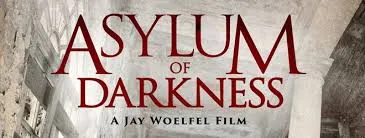Ironclad
Ironclad (2011) is a gritty medieval action film directed by Jonathan English, set in 13th-century England during the tumultuous aftermath of the signing of the Magna Carta. Starring James Purefoy, Paul Giamatti, Brian Cox, Kate Mara, and Derek Jacobi, the film dramatizes the siege of Rochester Castle in 1215—a pivotal but often overlooked moment in British history. Blending historical events with stylized violence, Ironclad presents a brutal tale of rebellion, loyalty, and the fight for liberty against tyranny.
The film opens in the wake of King John’s reluctant agreement to the Magna Carta, a document that sought to limit royal authority and affirm baronial rights. Furious over being forced into submission, John—played with venomous intensity by Paul Giamatti—gathers an army of ruthless Danish mercenaries to reclaim control and exact revenge on the rebel barons. His goal is to crush the resistance and erase the Magna Carta from history.
Standing against him is a small band of knights and warriors led by Thomas Marshall (James Purefoy), a battle-hardened Templar Knight tormented by his past. He is joined by Baron William d’Aubigny (Brian Cox), who has vowed to protect the fledgling idea of English liberty at all costs. Together, they retreat to Rochester Castle, a strategically vital stronghold, and prepare for a desperate last stand against overwhelming odds.
The bulk of the film is devoted to the intense siege of the castle, which is portrayed with grim realism and unrelenting brutality. The defenders, vastly outnumbered, face constant assault from King John’s forces. The battle scenes are visceral and unflinching, featuring medieval combat in all its muddy, gory detail—swords clash, limbs are severed, and no one is spared from the horror of war. Director Jonathan English avoids romanticizing the era, instead focusing on the physical and psychological toll of prolonged combat.

Amid the chaos, a subdued romance blooms between Thomas and Lady Isabel (Kate Mara), the wife of Rochester's lord. Their connection offers a rare moment of tenderness in an otherwise brutal story, though it never distracts from the central conflict. Thomas, bound by his Templar vows, struggles with his sense of duty, faith, and personal longing.
One of the film’s standout performances comes from Paul Giamatti as King John. Giamatti portrays the monarch as both petulant and dangerous, a man consumed by resentment and pride. His version of King John is no mere tyrant, but a deeply insecure ruler fighting to preserve what he sees as divine right—a performance that adds nuance to the historical figure.
While Ironclad takes liberties with historical accuracy, it captures the spirit of resistance and the human cost of standing up to authoritarianism. Its dark tone, violent aesthetic, and claustrophobic setting make it a spiritual cousin to siege-focused war films, though with a distinctly medieval flavor. Critics were divided on the film’s excessive violence and somewhat limited character development, but praised its commitment to tone and atmosphere.
Ultimately, Ironclad is a rough, blood-soaked tale of defiance—an unpolished but intense portrayal of one of England’s earliest fights for freedom.

-1751855613-q80.webp)
-1751612746-q80.webp)
